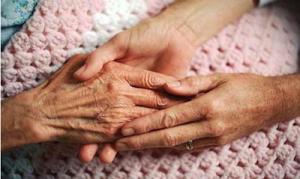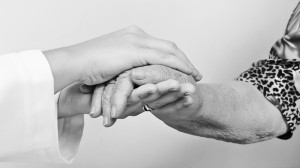I know I’m not the only one munching on graham crackers and milk in the wee hours. For those of you who sleep like a baby and wake up refreshed and energized… well let’s just say the rest of us are green with envy.
Good quality sleep is not overrated. It’s absolutely essential to our health and well being. According to Nancy Foldvary-Schaefer, director of the Cleveland Clinic Sleep Disorders Center, “We now know sleep is an active process – all your organ systems behave differently during sleep, restoring themselves.”
During sleep, our bodies are busy at work repairing itself, cleansing toxins, reducing inflammation. And in recent years, research has linked higher risks of brain disorders, diabetes and obesity to sleep deprivation.
People living with dementia are certainly not immune to sleep challenges. Disturbances can be caused by changes in the brain that cause restlessness, urine or prostate problems, pain or discomfort, sleeping too much during the day, nightmares or environmental factors (for example external noise or feeling too hot or cold).
As dementia progresses, routine becomes more important to one’s feeling of safety and security. This is certainly true with evening and bedtime rituals. Not unlike what all of us should practice, here are a few reminders of what may help prepare for a better night’s sleep:
- Light exercise in early evening, and wind down 90 minutes before bedtime. Electronic devices should be minimized.
- Dozing should be discouraged, as this may make falling asleep even more difficult.
- Avoid tea, coffee, sodas or alcohol should be discouraged, as all of these can have an opposite effect, especially for someone living with dementia.
- Make sure bed and room temperature is comfortable (cooler is generally better than warmer).
- A regular routine of listening to soft music, a light back rub or applying aromatherapy lotion may be very helpful in creating a calming atmosphere that may induce sleepiness.
As more holistic therapies for sleep are ushered into person-centered care practices, less use of pharmacological aids will be needed. Side effects of sleep-inducing drugs can have negative consequences on quality of life for those living with dementia and their care partners.
Pam Brandon is President/Founder of AGE-u-cate® Training Institute. Their groundbreaking program Compassionate Touch® is a practical and feasible means to reduce behavioral and psychological symptoms of dementia and crete positive engagement of elder, staff and family caregivers.


